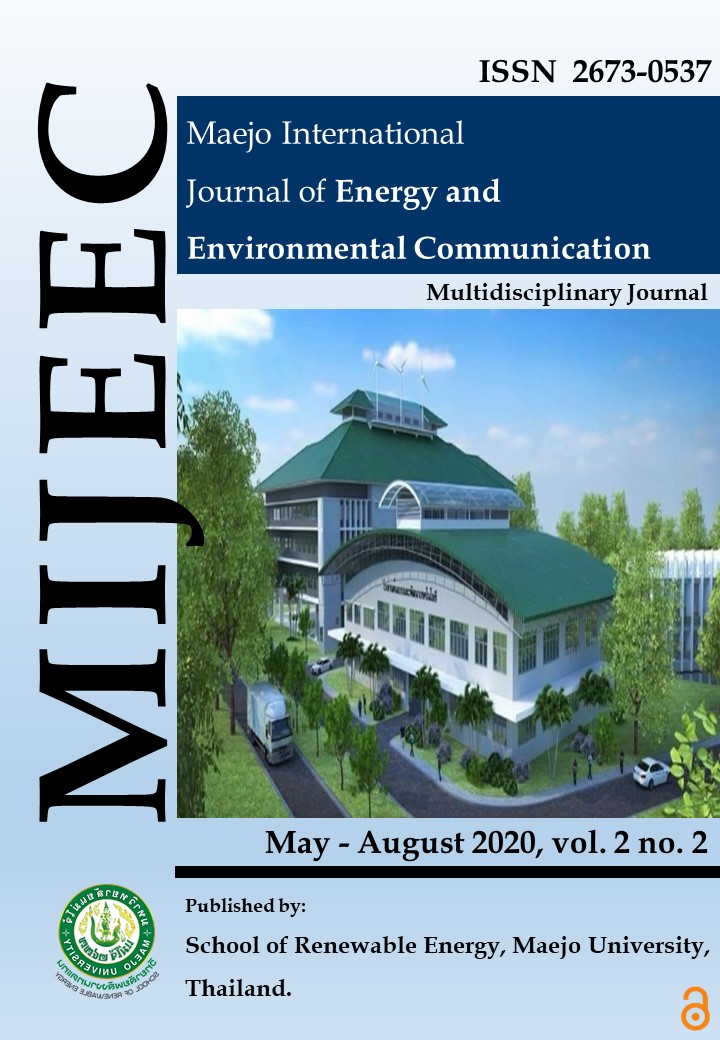Decomposition of gas phase benzene under different conditions in atmospheric strong ionization non–thermal plasma
Main Article Content
Abstract
Atmospheric volatile organic compounds (VOCs) from industry and automobiles are posing a serious threat to the environment and human health, and hence efficient control methods are indispensable. This paper presents a laboratory-scale study on the decomposition mechanism for benzene using strong ionization dielectric barrier discharge (DBD) at atmospheric pressure. The specific input energy (SIE), current density, and concentration were studied. The results show that the removal efficiency of benzene increased from 12% to 69% with the increase of SIE from 0.5 to 3.8 kJ/L. The decline in current density by 66.48% and 43.7% for an initial benzene concentration of 300 ppm, was due to increased oxygen content (from 2.4% to 20.9%) and relative humidity (from 18.9% to 90%), respectively, thus electron concentration and consequentially enhancing the removal efficiency over 93%. Further, the beta parameter of the VOC decomposition law decreased from 3.1 kJ/L at 300 ppm to 1.6 kJ/L at 100 ppm. This shows that •O and •OH radicals are key species for the decomposition of benzene and electron dissociation reactions principally control the process. The highest ozone concentration was detected at 5.5 mg/L when no benzene is present, while the main NOx species (NO and NO2) increased with increasing SIE. The Maxwell–Boltzmann electron energy distribution function was solved using the strong ionization discharge reactor (~10 eV), showing that approximately 84.8 % of high-energy electrons possess enough energy to cause the benzene ring cleavage and free radical production. Finally, GCMS and FTIR test results suggested that the byproducts mainly consisted of phenol and substitutions of phenol. The study results show that the strong ionization DBD reactor efficiently removes benzene from polluted air.
Article Details
Copyright © 2019 MIJEEC - Maejo International Journal of Energy and Environmental Communication, All rights reserved. This is an open-access article distributed under the terms of the Creative Commons Attribution-NonCommercial- Attribution 4.0 International (CC BY 4.0) License






